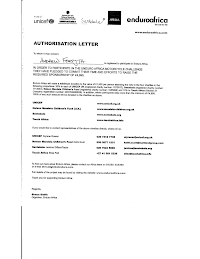Vaccine-Preventable Diseases
Vaccine recommendations are based on the best available risk information. Please note that the level of risk for vaccine-preventable diseases can change at any time.| Vaccination or Disease | Recommendations or Requirements for Vaccine-Preventable Diseases |
|---|---|
| Routine | Recommended if you are not up-to-date with routine shots such as, measles/mumps/rubella (MMR) vaccine, diphtheria/pertussis/tetanus (DPT) vaccine, poliovirus vaccine, etc. |
| Hepatitis A or immune globulin (IG) | Recommended for all unvaccinated people traveling to or working in countries with an intermediate or high level of hepatitis A virus infection (see map) where exposure might occur through food or water. Cases of travel-related hepatitis A can also occur in travelers to developing countries with "standard" tourist itineraries, accommodations, and food consumption behaviors. |
| Hepatitis B | Recommended for all unvaccinated persons traveling to or working in countries with intermediate to high levels of endemic HBV transmission (see map), especially those who might be exposed to blood or body fluids, have sexual contact with the local population, or be exposed through medical treatment (e.g., for an accident). |
| Typhoid | Recommended for all unvaccinated people traveling to or working in Southern Africa, especially if visiting smaller cities, villages, or rural areas and staying with friends or relatives where exposure might occur through food or water. |
| Rabies | Recommended for travelers spending a lot of time outdoors, especially in rural areas, involved in activities such as bicycling, camping, or hiking. Also recommended for travelers with significant occupational risks (such as veterinarians), for long-term travelers and expatriates living in areas with a significant risk of exposure, and for travelers involved in any activities that might bring them into direct contact with bats, carnivores, and other mammals. Children are considered at higher risk because they tend to play with animals, may receive more severe bites, or may not report bites. For updates on the rabies vaccine supply, please check the Rabies News and Highlights page regularly. |
Malaria
Malaria Contact for Health-Care ProvidersFor assistance with the diagnosis or management of suspected cases of malaria, call the CDC Malaria Hotline: 770-488-7788 (M-F, 8 am-4:30 pm, Eastern time). For emergency consultation after hours, call 770-488-7100 and ask to speak with a CDC Malaria Branch clinician.
If you will be visiting a malaria risk area in South Africa, you will need to take one of the following antimalarial drugs: atovaquone/proguanil, doxycycline, or mefloquine (primaquine in special circumstances and only after G6PD testing).
Note: Chloroquine is NOT an effective antimalarial drug in South Africa and should not be taken to prevent malaria in this region.
Malaria risk area in South Africa: Risk exists in the low-altitude areas of the Mpumalanga Province, Northern Province (Limpopo), and northeastern Kwa- Zulu-Natal as far south as the Tugela River. Risk in Kruger National Park.
To find out more information on malaria throughout the world, you can use the interactive CDC malaria map. You can search or browse countries, cities, and place names for more specific malaria risk information and the recommended prevention medicines for that area.




No comments:
Post a Comment